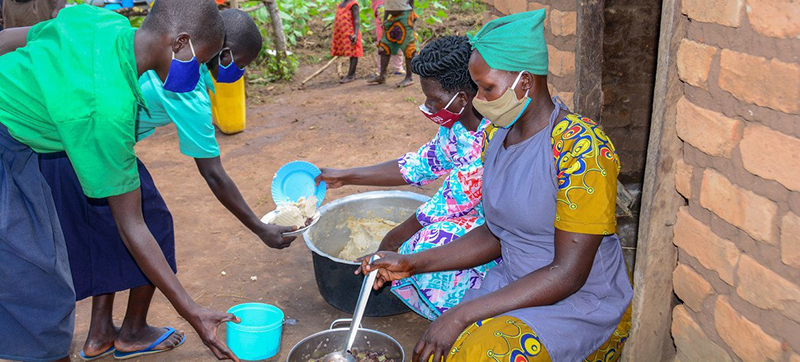 Security Council
Security Council
Security Council examines capacity building for sustaining peace in Africa
New York: Greater investment in State institutions is critical to counter peace and security challenges in Africa, a senior UN official told the Security Council on Monday.
Cristina Duarte, the Secretary-General’s Special Adviser on Africa, briefed ambassadors during a debate to examine capacity building for sustaining peace on the continent, and to explore the way forward.
She highlighted how African countries’ efforts to both prevent and address violence are being undermined by external factors such as competition over natural resources, which fuels conflict, to the increasing presence of global terrorist networks that are gaining footholds in some regions.
These efforts are also being thwarted by internal factors, including discrimination in the delivery of public services, corruption, and non-inclusive planning and budgeting processes. Furthermore, in areas where the State is absent, service delivery is being provided by non-State actors such as criminal and terrorist groups.
Make investment the cornerstone
Ms. Duarte underscored that policy and financing are the main challenges to capacity building, and she offered recommendations on the way forward.
“Investing in institutional infrastructure is essential in order to build the capacities to tackle the internal causes of violence. Institutions have the power to catalyze holistic solutions. Institutional capacity building should, therefore, be the cornerstone of efforts to achieve sustainable peace,” she said.
Meanwhile, technical cooperation to create policy and institutional capacity needs to be a priority in all in conflict situations.
Ms. Duarte said this requires increasing cooperation and coordination among the UN’s different areas of work. At the same time, deliberations on peace and security issues must be informed by analyses on the socio-economic conditions and institutional capacity of countries.
The Special Adviser on Africa also called for action by peacekeeping missions, which reach areas where State presence is absent.
“Closer cooperation with national and local authorities, not only from a security perspective but also from the perspective of institution-building could create opportunities for increasing the presence of the State and enhancing the delivery of services, preventing gaps that can be leveraged by terrorist groups and non-State actors,” she said.
Feeding the future
Relatedly, she pointed to the power of school feeding programmes, describing them as “an example of a public service with a great potential to contribute to long-term peace and stability.”
Though primarily a means to address issues such as low educational attainment, malnutrition and overall food insecurity, these programmes also promote local economies and women’s empowerment, among other benefits, including reducing risk of child recruitment into terrorist groups.
“School-feeding is, all in all, a cost-effective way of strengthening trust in public institutions through the delivery of basic services,” said Ms. Duarte, adding that her Office has launched an initiative called ‘A pen for a gun’ to showcase the role these programmes have in promoting social cohesion and peace in Africa.
Greater collaboration
The UN and the African Union (AU) are partners on the continent. Their collaboration must be stepped up, the AU’s Commissioner for Political Affairs, Peace and Security said in his remarks.
Ambassador Bankole Adeoye noted that partnership on peacekeeping and peacebuilding is “well-articulated and appreciated,” but it must move forward to develop capacity in peace enforcement in order to defeat terrorism and violent extremism.
He emphasized the need for joint transformative leadership between the UN Security Council and the AU’s own Peace and Security Council.
“For Africa, the focus will be on building integrated capacity for peace enforcement operations from both the military and the whole of society approach,” he said. “It is also equally important that we work towards unlocking the financial challenges that are associated with peace operations.”
Inclusivity is key
The Council also heard from the head of the UN’s Peacebuilding Commission (PBC), which has supported capacity-building initiatives in African countries,.
Muhammad Abdul Muhith, the PBC Chair, shared observations from lessons learned in places such as the Central African Republic, Liberia and Burundi, addressing issues that include gender equality and youth empowerment.
Although enhancing capacity building for sustaining peace is a complex process, and measures must be tailored to the specific country and regional conditions, he stressed that inclusivity is key.
“In view of this, the Peacebuilding Commission emphasizes the importance of ensuring that women, youth and those who are in vulnerable situations are included in efforts to build capacity at the local, national and regional levels,” he said.
“The Commission also stresses that civil society can play an important role in advancing efforts to build and sustain peace.”
Support Our Journalism
We cannot do without you.. your contribution supports unbiased journalism
IBNS is not driven by any ism- not wokeism, not racism, not skewed secularism, not hyper right-wing or left liberal ideals, nor by any hardline religious beliefs or hyper nationalism. We want to serve you good old objective news, as they are. We do not judge or preach. We let people decide for themselves. We only try to present factual and well-sourced news.







